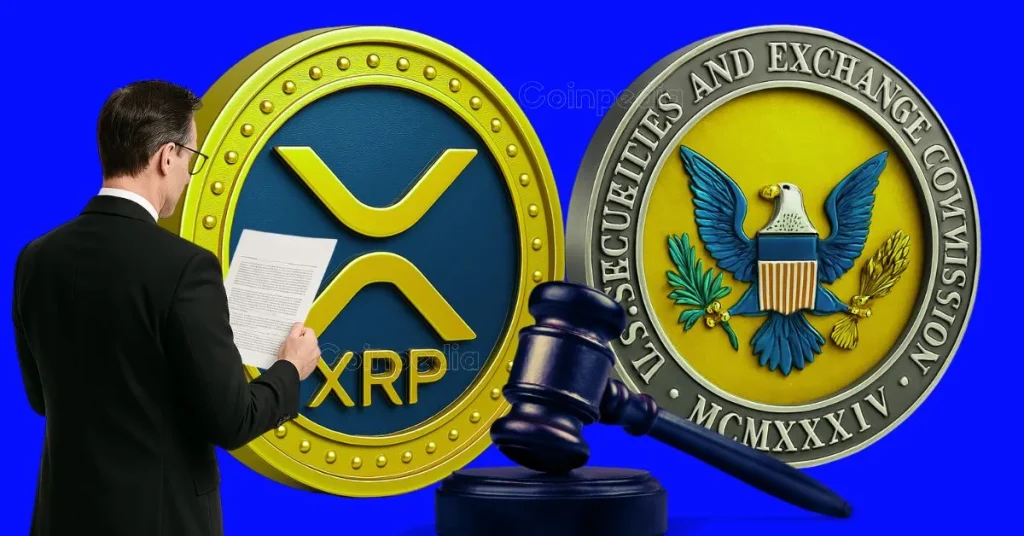Tucker Carlson Claims CIA Created Bitcoin, Warns Against Crypto Privacy
TLDR
- Tucker Carlson claims the CIA could have created Bitcoin.
- Carlson warns that cryptocurrencies lack privacy and could lead to totalitarian control.
- He expresses skepticism about Bitcoin’s founder and the mystery surroundingthe identity of Satoshi Nakamoto.
- Carlson supports Roger Ver and opposes centralized finance control.
- He refuses to invest in Bitcoin due to privacy concerns and lack of transparency.
At a recent Turning Point USA event, Tucker Carlson expressed concerns about Bitcoin and cryptocurrencies, claiming that the CIA may have created Bitcoin. His remarks have sparked debate in the crypto world, with many dismissing his theory. Carlson also voiced concerns about the lack of privacy in digital currencies, calling them tools for “totalitarian control.”
Carlson’s Theory on Bitcoin’s Origin
During his speech, Tucker Carlson claimed that Bitcoin could have been created by the Central Intelligence Agency (CIA). He explained that he believes the mysterious nature of Bitcoin’s founder, Satoshi Nakamoto, suggests a connection to the CIA. Carlson added,
He further emphasized that no one could provide a clear answer about Nakamoto’s identity. Carlson said, “I can’t prove it, but my guess is the CIA was behind it.” His theory is based on the assumption that the name “Satoshi Nakamoto” could be a hint toward the CIA’s involvement.
The idea that the CIA created Bitcoin is not new, but it remains a fringe theory in the crypto space. Some people believe Bitcoin’s transparency could make it a potential surveillance tool. Despite this, there is no concrete evidence to support Carlson’s claims, and many in the crypto community have rejected the idea.
Tucker Carlson’s Concerns About Digital Currencies and Privacy
Tucker Carlson also raised concerns about the lack of privacy in digital currencies. He warned that cryptocurrencies like Bitcoin could lead to “totalitarian control” over individuals’ financial lives. According to Carlson, central banks and governments could eventually use digital currencies to track every transaction and monitor people’s economic activities.
Carlson criticized the idea of central bank-issued digital currencies (CBDCs), which some governments, like China, are developing. He believes that such currencies would further limit financial freedom. Carlson’s remarks resonate with critics of CBDCs, who worry about the potential for state-sponsored surveillance.
While Carlson admitted he values financial autonomy, he remains skeptical of digital currencies due to their privacy implications. He argued that while the youth are drawn to Bitcoin, they may not fully understand the long-term consequences. Carlson stated, “The youth see crypto as a way out, but they don’t realize it could become a scam of all sorts.”
Carlson’s Support for Roger Ver and Views on Crypto Investment
Despite his criticism of cryptocurrencies, Tucker Carlson has shown some support for figures within the crypto world. He advocated for the end of the prosecution of Bitcoin proponent Roger Ver, arguing that Ver was targeted because of his opposition to centralized finance. “This lawfare isn’t really about taxes. It’s about control,” Carlson stated.
However, Carlson’s view on investing in Bitcoin is clear: he does not invest in anything he does not fully understand. Carlson emphasized that he does not trust Bitcoin due to the uncertainty surrounding its origins. “It matters to me,” he said, expressing his frustration with the lack of transparency about Bitcoin’s creator.
The post Tucker Carlson Claims CIA Created Bitcoin, Warns Against Crypto Privacy appeared first on CoinCentral.
You May Also Like

What the U.S. shutdown tells us about market resilience

Ripple News: Trump’s CFTC Nominee Has History on XRP’s Side, Here’s Why
